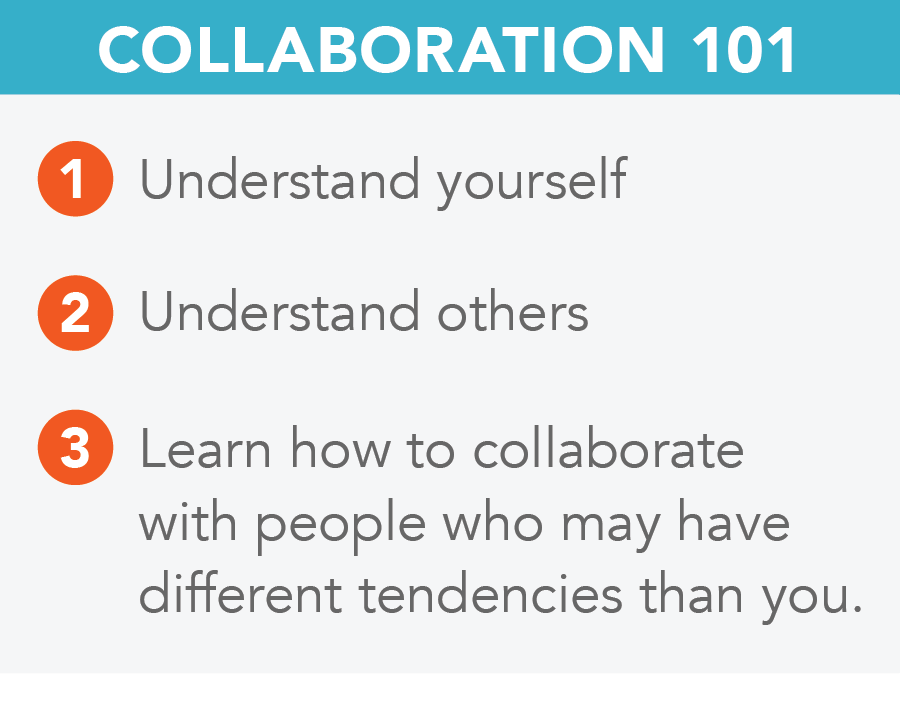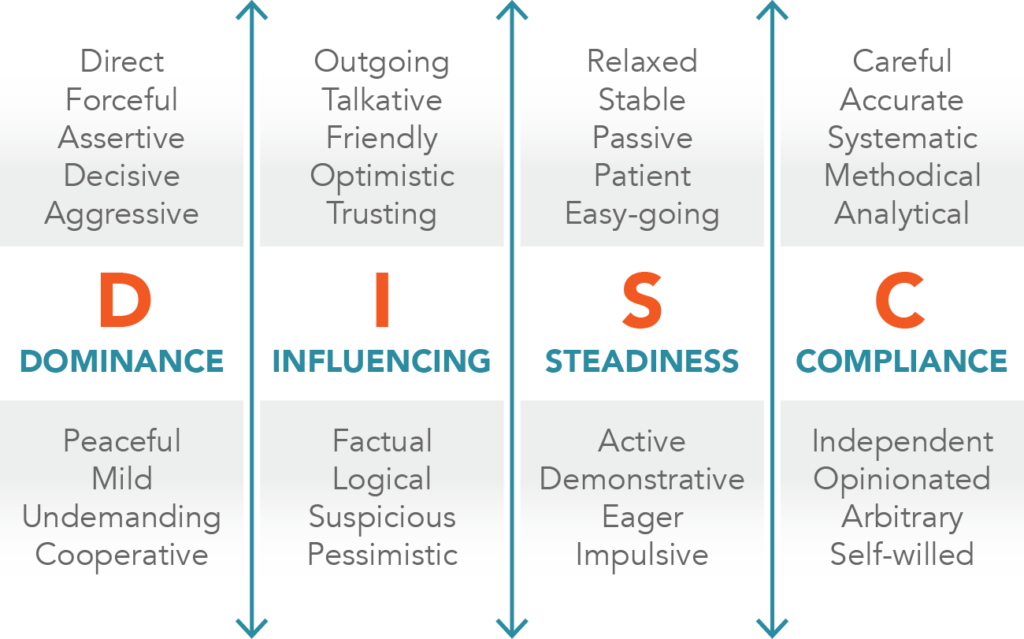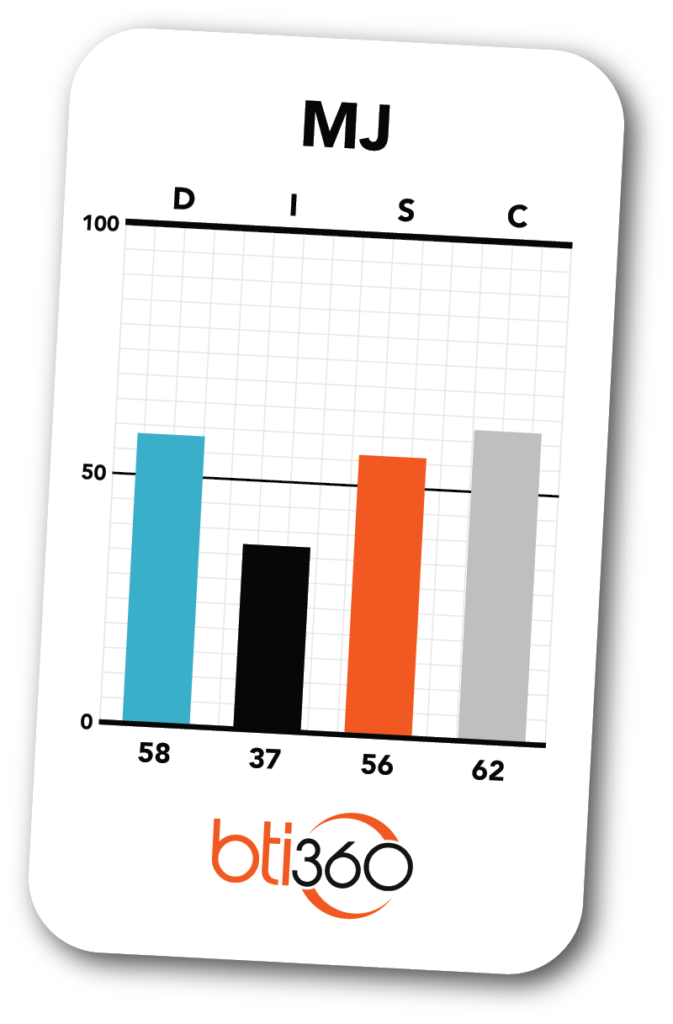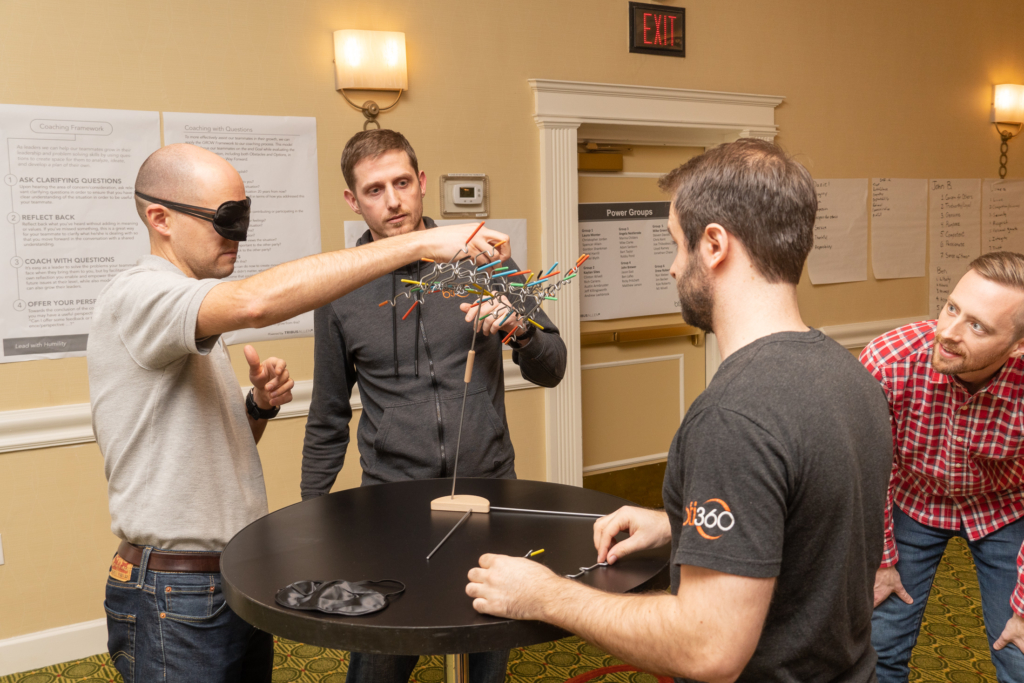At BTI360 we often say that software development is a team sport. We’ve spent a lot of time learning about how to build high-performing software teams, and we’ve found that the best teams are made up of diverse groups of people who trust each other and understand how to work together.
Good Teams Are Diverse
Strong teams have a mix of personalities: doers, organizers, thinkers, visionaries, introverts, extroverts, etc. Each person brings value to the project. Some keep it moving forward, some strategize about the best approaches to use, some pay extra attention to the relationships within the team.
A homogeneous team will generally produce an inferior product. A team with clashing personalities may not produce anything. So how can you benefit from varying perspectives without  getting bogged down in conflict and frustration? This is the question we tackle in a 4-week internal class we call “Collaboration 101.”
getting bogged down in conflict and frustration? This is the question we tackle in a 4-week internal class we call “Collaboration 101.”
In Collaboration 101 we follow a three-step approach: understand yourself, understand how other people tend to work, and learn how to collaborate with people who may have different tendencies than you.
Begin with Self-Knowledge
When teaching collaboration we begin with self-knowledge. To work well with others, you must understand yourself. Knowing how you are wired allows you to thoughtfully engage with others.
There are lots of ways to increase your self-knowledge—personality tests, TED talks, books, even experiencing unfamiliar cultures. We like all of these resources! At BTI360 we have our share of Myers-Briggs enthusiasts, and one of our leaders is a certified Enneagram coach.
But in Collaboration 101 we use a slightly less familiar behavioral profile called DISC. The DISC Assessment was developed from the work of psychologist William Marston, and it is widely used in business contexts. DISC focuses on four personality dimensions: Dominance (D), Influencing (I), Steadiness (S), and Compliance (C).
We use an assessment provided by Cool Springs Insights.
Why We Prefer DISC
 DISC works well in a team setting because it is simple and descriptive. You only need to remember four things!
DISC works well in a team setting because it is simple and descriptive. You only need to remember four things!
At BTI360, DISC profiles provide a simple shared language for understanding how teammates process situations differently. We realize that not everyone is interested in going deep into systems like Myers-Briggs or Enneagram. You don’t have to read a book or memorize any personality archetypes to get benefit from DISC.
We think of it this way. There are lots of personality tests that will help you better understand yourself. We think that DISC is the simplest paradigm for communicating those insights to others.
Adapting Communication to Your Audience
If you use a tool like DISC to learn about yourself and stop there, you are missing out on most of the value. After looking at how we process and communicate information, we learn how we can use those insights to tailor our interactions to teammates who are wired differently.
Here’s a real-world example of how DISC helped reconcile different personality types. I was once a part of a team with a High-D, High-I technical PM. She had a strong bias to action. In meetings, she wanted to hear a high-level summary and move on. We had an engineer on that team who was an off-the-charts C. He gave lengthy, detailed explanations to make sure he had accurately represented the facts. The technical PM often left conversations with the engineer tired and frustrated.
After attending Collaboration 101, the engineer realized the communication mismatch. His nuanced answers were not serving the technical PM. The PM needed important talking points he could communicate up the chain in the organization. The engineer adapted his communication style so that his reports began with high-level summaries and talking points, and then provided more detailed explanations. He found a solution that worked for both of their behavioral types.
Collaboration Culture
At BTI360, we have people all over the DISC spectrum. We even have teammates who are 100/100 in a specific personality trait. We didn’t even know that was possible! DISC has become a part of our collaborative culture. It helps us appreciate and benefit from our differences, rather than being frustrated by them.
If you’d like to learn more about the DISC Assessment, this video gives a quick introduction:
Manager Tools also has lots of helpful resources on using DISC at work.
